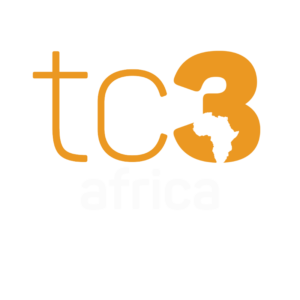Loss in the caregiving journey is not limited to end of life. Caregiving is marked by a lot of change and one of the most significant changes is loss which comes in many different ways. Yet, it is not unusual for family caregivers to grapple with loss but not know it. Many of these losses occur very subtly and some may seem insignificant at the time they occur but as the impact of the losses manifest, the full import of the loss results in a sense of being bereft of a significant part of your life or of who you are. Grief is the normal process of reacting to a loss of any kind be it death, physical loss such as loss of a limb or of health, social loss like divorce and abandonment or occupational loss, like losing your job.
Losses Caregivers Face
The losses that come with caregiving include loss of:-
- Identity
- Plans/dreams/direction
- Relationship as you knew it with your care recipient
- Relationship with other family members
- Employment
- Housing
- Status
- Studies
- Health
- Peace
- Faith
- Control
- Security
- Time
- Dignity
- Friends/social networks
- Space
- Independence
- Freedom
- Financial stability
- Family peace
- Loved one
Given that many of these non-death losses are not recognised, acknowledged and understood (disenfranchised grief), it makes it challenging for caregivers to find the freedom to express and work through their grief. The impact of the unresolved grief can be long lasting pain and distress that can lead to depression. Most caregivers encounter a number of these losses in their caregiving journey. Sometimes you may experience several losses at a go and sometimes the losses may be successive. Loss may reoccur at a different stage or time in the caregiving journey. In some cases loss may occur in increasing measure like when your care recipient’s condition deteriorates and more changes occur because of that.
As caregivers it is important to identify and acknowledge the losses that one is facing and the feelings like anger, sorrow, guilt, fear, anxiety, stress, despair and aloneness that come with the loss.
Grieving One Who is Alive
When we care for someone over a long period of time, we begin to grieve the loss of the person as we knew them and the loss of our relationship as we knew it. Though the person is alive we miss the person we knew and who has been affected by illness. We also grieve the loss of the future we envisioned with them. This loss is felt in the day to day interactions. The same is true even for parents of children born with congenital conditions who lose their dreams about the future they hoped their children would have and the kind of parenting relationship they expected to have them.
Ambiguous Loss
This occurs when a family member is physically present yet not present cognitively. A sense of “being there” but “not there” that occurs when someone suffers cognitive impairment because of illness like stroke, dementia, Alzheimer’s or brain injury. As a caregiver, if your family member has moments when their thoughts, speech or memory are clear and logical only for them to lapse into a state of confusion and forgetfulness, you can be disappointed, angry and frustrated. Why can’t they have more lucid moments? Alongside stress, increasing frequency of lapses creates a renewed sense of grief. Grief because the relationship you once had is getting lost to the illness. Questions about why they cannot have more lucid moments. Loss of conversations that were once provided connectedness and companionship no longer do so and what were fulfilling and enjoyable conversations no longer are so. Normal communication dynamics and misunderstandings in family relationships become very twisted and complicated. As the caregiver you are under so much pressure to understand your care recipient unlike in the past when both or all of you were responsible for putting effort to understand one another. Your loss can take so many shapes and forms.
Anticipatory Grief
As a caregiver you may find yourself anticipating the end of life of your family member who is ill. This creates a confusing mix of fear, grief, guilt and shame as you wonder if you are wishing the death of your loved one. Actually you are not. When caring for someone who has been diagnosed with a debilitating illness, the reality of their mortality and our own comes alive. It is normal for a caregiver to have anticipatory grief. It is a way of preparing emotionally for the inevitable. It does not necessarily reduce the grief when someone dies though. When loss and anticipatory grief is shared in a family, it can allow both the care recipient and family members to share treasured opportunities, empathise with one another, hold deep conversations, build stronger ties, tackle any unresolved family matters and make end of life plans such as burial arrangements.
Children and Disenfranchised Grief
Children and teenagers easily get forgotten in the caregiving dynamic when a parent, sibling or grandparent is ailing. Often times it is assumed children are oblivious to what is happening, do not understand loss and therefore that grief is a non –issue for them. Children too need to be assisted to process what is happening so that they do not end up with long term effects of loss and unresolved grief. Observing them, discussing with them and being deliberate in finding out what thoughts, fears and questions they have is very good for them. Supporting one another in this way helps individual family members to not only process what they are going through but also to develop very strong bonds.
Care Recipients and Loss
Care recipients with chronic illnesses too encounter a lot of loss that is distressing to them though they too may not be fully aware of the loss, grief and depression they are dealing with. These losses could include loss of speech, mobility, independence, memory, control, dignity, future plans, friends and others. Your family member may lash out at you or withdraw from you to express their frustration.
Stages of Grief
The most widely known definition of the stages of grief was defined by Elizabeth Kübler-Ross as a 5 stages of shock or denial, anger, bargaining, depression and acceptance.
Shock/Denial: There is trouble accepting the fact of death, diagnosis or new reality, Numbness is common.
Anger: Here one gets angry at life, at themselves, at others, at the doctors attending to their loved ones, at God, even at the person you care for.
Bargaining: You find yourself negotiating with God or people and trying to make deals with them that you hope can change the situation. Thoughts of what could have been done or should have been done differently dominate.
Depression: You feel overwhelmed by change, loss, sadness, regret, anxiety, fear. There is also a strong sense of loneliness, isolation, emptiness, self-pity and feeling lost.
Acceptance: Adjusting to the reality and starting to move on creates a sense of healing and hope.
Symptoms of Grief:
People experience and express grief differently. In a family caregiving situation, this can cause conflict if family members do not recognise that each one may walk their journey differently and needs the freedom to do so. Grief affects us emotionally, physically, socially and spiritually.
Emotional Signs
- Sadness
- Crying spells
- Guilt
- Anger/rage/frustration
- Worry/anxiety/panic
- Yearning
- Edginess/Irritability
- Memory problems/distraction
- Depression
- Euphoria
- Passive resignation
- Fluctuating emotions
- Feeling a loss of control
Physical Signs
- Crying
- Sighing
- Low energy/exhaustion/fatigue
- Headaches
- Overeating comfort foods
- Heaviness, aches and pains
- Super busy/pushing yourself too much
- Reckless, self-destructive behaviour
- Sleep disturbance (too much, too little, nightmares)
Social Signs
- Feeling alone
- Feeling detached from others
- Social isolation
- Feeling needy and clingy (not wanting to be alone)
- Anger that others’ lives are going on and yours isn’t
Spiritual Signs
- Questioning your faith, the meaning of life, why suffering occurs and the reasons for death and disease
- Anger at God
- Finding solace in God and getting closer to faith




